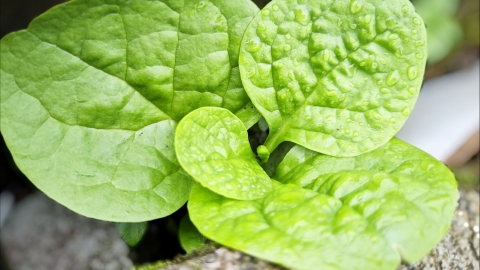Can I eat Malabar spinach after a tonsillectomy?
Whether a patient can consume Malabar spinach after a tonsillectomy primarily depends on the individual's postoperative recovery. If the wound is healing well, moderate consumption is generally acceptable. However, if the recovery is not yet complete, it is not recommended. Detailed analysis is as follows:

When the surgical wound has largely healed, there is no significant pain, and the physician determines that the patient can gradually resume a normal diet, moderate consumption of Malabar spinach is feasible. Malabar spinach is rich in vitamin C and dietary fiber, which can help enhance immunity and promote digestion. However, it should be thoroughly cooked until soft to avoid irritating the surgical site with hard or hot foods.
However, if the wound from the tonsillectomy has not fully healed or if there are complications such as bleeding or infection, then caution should be exercised when consuming Malabar spinach or other hard foods, as they may irritate the wound and worsen the condition. Additionally, some individuals may experience allergic reactions to Malabar spinach, which could result in symptoms such as rashes or itching. Therefore, it is important to determine whether one is allergic to Malabar spinach before consumption.
Throughout the recovery period, maintaining good oral hygiene is recommended to minimize the risk of infection.




